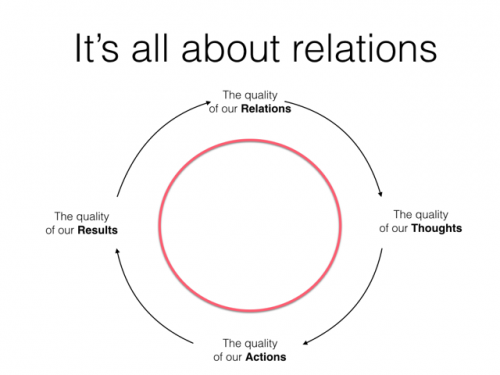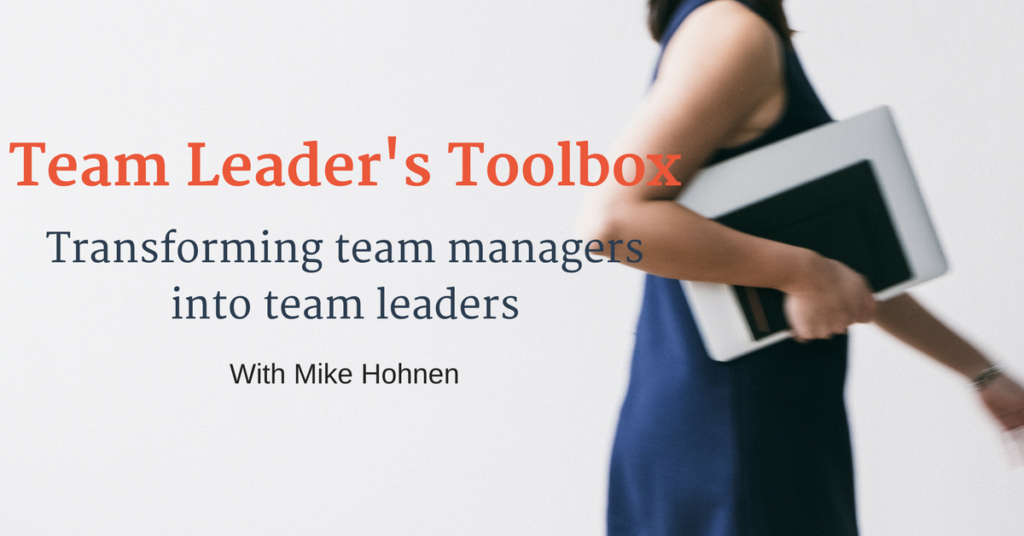
In our continuing series on how to lead a team as a first time manager, I would like to focus on the importance of relations.
Last week, we briefly touched on this when we worked through the high performance team model.
The second step in that process – the who part – is all about relations.
Daniel H. Kim the systems thinker has illustrated this in a very elegant way.

So we have a fundamental choice here. And it can go one of two ways.
We can generate an upward spiral where we are continuously developing our relations and, as a result, performing better and better; or we can take the downward spiral where it all just gets worse and worse.
It is a choice.
A choice that is going to determine whether the team is going to be successful or not and, ultimately, it’s going to determine whether you are successful in your role as a team leader.
For the first time manager, this sometimes comes as a surprise and we think, “I have a gazillion other things to do. Do I also have to think about that, I just want to get the job done?”
And the next thought is maybe, ‘but what do we mean by relations exactly?’. This is where the first time manger can make a classical and very costly mistake.
Relationship is not about trying to please everyone. A relationship is about mutual expectations and that is something very different.
I like Ed Schein’s definition of a relationship:
“A relationship is a set of mutual expectations about each other’s future behaviour based on past interactions with each other.”
So you have a relationship with someone when you can more or less predict some of their behaviours and vice versa. Relationships go both ways, otherwise they are not relationships.
But we have relationships of different depths with other people. They can be shallow, meaning that both of us have a vague sense of what the other person will do; or at the other end of the spectrum, they can be deep to the extent that we almost know what the other person thinks and feels in most situations.
A good, solid work relationship means that we feel a certain level of comfort with each other, we have a good understanding of how the other will react and we are well aligned with respect to whatever goal or project we are working on.
That kind of comfortable relationship we often summarise in one small word: trust.
But in order for me to determine how much to trust you and how open I can expect you to be with me, we must have a history.
We judge our relationships on past interactions, and we are usually very observant of these first interactions because we use them as a test – and the result of the test feed into our conclusions on how this relationship works.
In practical terms, this means that as a first time manager, you will need to invest time and effort in building these relationships. And when doing so, you have three basic tools at your disposal:
Your actions, your behaviours and your conversations.
In our next post, we will look closer at these three relationship building instruments.
___________________________________________________
This is the fifth article in a series on how to lead as a first time manger. If you would like to know more, check out other articles of the first time manager series:
- How are you supporting your first time managers?
- The big leap… from team member to team leader
- First time manager – The challenges
- Direction, Alignment & Commitment in 4 easy steps
- How your relations affect your results
- Powerful or powerless, what do you prefer?
- Behaviour
- Conversations, not small talk
- Take charge of your energy levels!
- You won’t get results by pussyfooting around the issues!
- What drives a fabulous employee experience?
I have a new online training out on this: The Team Leaders Toolbox – check it out

[…] First Time Manager: How your relations affect your results — Mike Hohnen says: July 3, 2016 at 5:00 pm […]